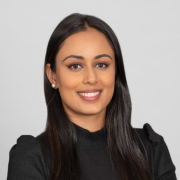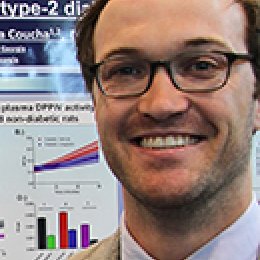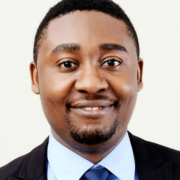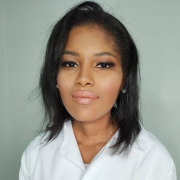How did you become interested in research relating to Hypertension and Cardiovascular Disease?
I would say that I initially gained an interest in cardiovascular disease and research through my family environment growing up: my father is a practicing interventional cardiologist and my mother was a Ph.D. specializing in cardiac electrophysiology. Cardiovascular science was the language of our household, so there was a strong sense of familiarity with the area during my first two years of medical school. My enjoyment of the subject as well as the excellent cardiovascular research opportunities at Georgia Regents University led me to focus on this area for my career.
Describe your research & the program/lab (info of your supervisor) that you are in?
My research focuses on the development of diabetic cerebrovascular disease, with a particular focus on the role of the incretin system and innate immunity. The prevalence of hypertension in diabetes, as well as the ever increasing diabetic patient population in the U.S., make this a pertinent topic of study. Specifically, I have been examining the role of DPP-IV inhibitors on glucose-independent vasorelaxation and vascular protection in diabetes, as well as the role of Toll-like receptor-2 in the impairment of cerebral blood flow and subsequent cognitive impairment. I joined the lab of Dr. Adviye Ergul in 2014, and it has been an excellent environment in which to train. Dr. Ergul’s lab focuses on the regulation of vascular function and structure in diabetes, with an emphasis on stroke and cognitive impairment.
What do you consider to be your substantial scientific contribution so far (provide Pubmed PMID if possible)?
My most significant contribution thus far was the examination of the effects of Toll-like receptor 3 on aortic vascular smooth muscle cell contractility in mice (Pubmed PMID: 25724934). I am looking forward to contributing more articles related to my dissertation soon!
What is your favourite manuscript from a lab or mentor other than your own (provide Pubmed PMID if possible)?
A paper that I enjoy and that is relevant to my current area of research is by Shah et al. that shows how acute DDP-4 inhibition modulates vascular tone through GLP-1 independent pathways (PMID: 21397040)
What facilities are essential for your research?
Here at Georgia Regents University, we have many excellent facilities. In our lab, I have access to both DMT tension myographs and pressurized arteriographs for vascular studies, as well as cell culture and animal surgical stations. Additionally, we utilize the facilities at the Small Animal Behavioral Core as well as the Small Animal Imaging Core for our studies.
Where do your research strengths lie? Why? What are your research weaknesses? How will you improve?
I believe that training as an MD/Ph.D. student provides me with a strong translational focus that I hope to continue developing in my career. I believe that perseverance is one of my best research qualities, as the world of scientific research is an unknown journey of discovery, full of twists and turns. I have an inquisitive mind and am always excited to learn about new topics, especially when they may have some tangential relation to my research interests. I have been the American Physician Scientist Association institutional representative of our MD/Ph.D. program for the last three years, which I believe has given me excellent training in leadership. Additionally, I thoroughly enjoy helping others and being part of a strong collaborative effort. For weaknesses, I wish that I had a more extensive background in bioinformatics, genomics, advanced statistics, and computer modeling. I believe that these concepts will be invaluable as a future physician scientist, and hope to pursue educating myself about them in my future career.
Describe your unforgettable (proudest) moment in science, and the most challenging situation that you have had to overcome (lessons learnt) so far?
Without a doubt, receiving an Annual High Blood Pressure Research Conference New Investigator Award in San Francisco, 2014 was a highlight of my graduate research experience. Receiving an ISH oral presentation award during the same trip to San Francisco was an amazing moment for me as well.
I would say the most challenging moment for me was having to switch labs after a year and a half in graduate school. As an MD/Ph.D. student, there is always a concern as to the time requirements in graduate school, and I was very worried that I may not be able to complete the program and continue on my journey as a physician scientist. I moved in to the lab of Dr. Adviye Ergul, and she has been an amazing mentor and supporter of my career. I would not be where I am today were it not for her guidance.
At which conference did you first present? How was your experience?
I first presented at Experimental Biology in Boston, 2013. It was a fantastic experience, and despite being a relatively large conference, I was able to make several contacts. I also had a great exposure to an enormous variety of work and new techniques.
What upcoming conferences will you be attending, and what is the furthest distance that you have traveled for a conference?
I will be attending this year’s upcoming AHA Hypertension meeting, as well as the APS Endothelin 14 meeting in Savannah. The furthest I have traveled to a conference was to San Francisco, and it was a great experience getting to see the west coast. I hope to return there again at some point!
How did you learn about ISH/NIN and its activities?
I learned about the ISH through my mentor Dr. Adviye Ergul, as well as through speaking with Dr. Richard Wainford, who came to give a seminar at Georgia Regents University. When I received an invitation to apply for the ISH symposium I was very excited to become a part of this organization.
What area(s) do you wish to specialize in the future?
Currently, I am hoping to pursue a neurosurgical residency position after completing school, and look for opportunities to perform translational research that will serve me both in my clinical work as well as in a research setting. Given my research background in vascular work, I am particularly interested in endovascular neurosurgery, but I am looking to be as open as possible to all areas going forward. As mentioned before, I would also like to learn as much as possible about genomics and bioinformatics and integrate that into my future research and patient care.
Who is your role model in Science? Why?
It is very hard to pick just one role model, as so many great people have been mentors to me and given me positive examples of a successful career. My current PI Adviye Ergul is one of the best scientists I have had the pleasure to work with, and her endless enthusiasm, scientific knowledge, and commitment to excellence are all traits I hope to aspire to. Jennifer Pollock has also been one of the greatest influences in my scientific journey thus far, and her guidance has been invaluable. Dr. Carlos Isales provided me with my first intensive research experience at GRU when I was still in college, and to this day his example of being a successful physician scientist is one that I hope to emulate.
Are you involved in other scientific or career associations? If yes, how is it helping in your career advancements?
I am involved in the American Physician Scientist Association as our MD/Ph.D. programs Institutional representative. I attended the annual APSA Southeastern meeting recently, and it was a great experience to speak with successful physician scientists about their career paths and receive advice.
What are your scientific goals? Advise for talented emerging scientists?
I am hoping to contribute to the field of diabetic neurovascular disease, both in a research setting as well as a clinical setting. I look forward to pursuing new areas of research that support this field and hopefully will contribute to the improvement of patient care in the future. My advice for emerging scientists would be that being your own toughest critic is important; constantly look for ways to improve and be a better scientist. Dedication to doing the best science possible and avoiding complacency is imperative. The standards that you set for yourself are the ones that can be the most difficult to achieve, but if you commit yourself to a goal and surround yourself with supportive people, then those standards and more are absolutely attainable.





















